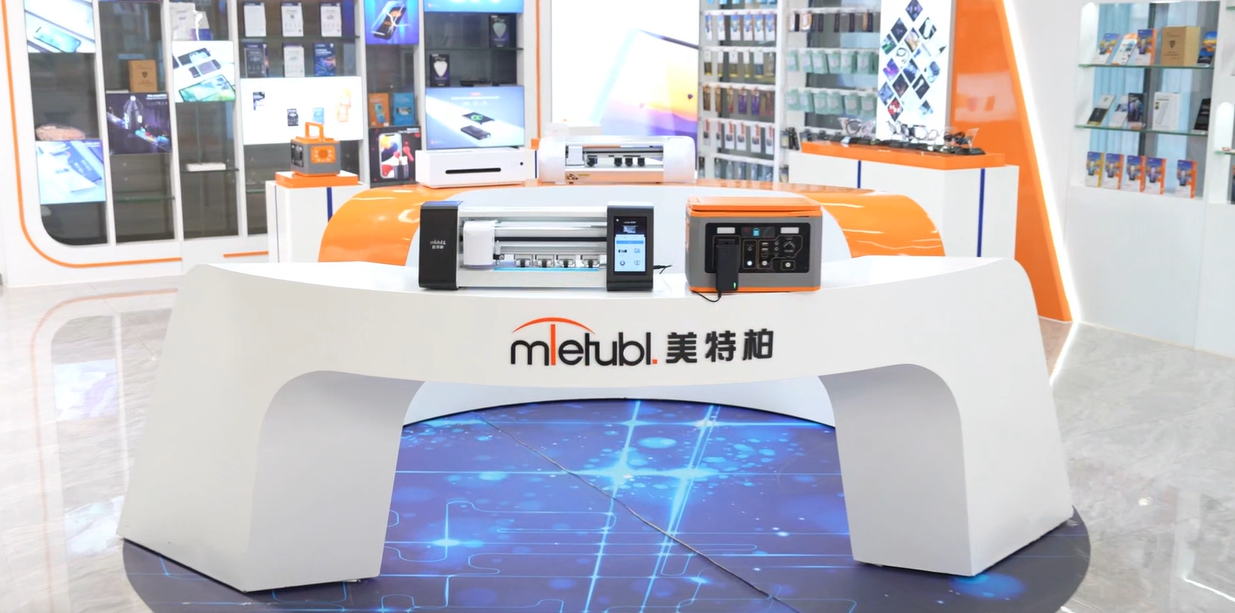
MIETUBL Brand Overview
MIETUBL is a brand originating from China and thriving through China’s intelligent manufacturing. It is committed to providing high-quality mobile accessories and related products to global consumers. Since its inception in 1998, the brand has followed the trends of the times, focusing on resource integration and building a symbiotic and shared industry ecosystem, enabling global consumers to conveniently access quality products that enhance their lives.
By continuously innovating and diversifying its product offerings, MIETUBL has achieved significant success in the mobile accessory industry. As a brand driven by customer value and innovation, MIETUBL has expanded into various product applications while accumulating rich industry experience and establishing a stable customer base. Headquartered in Zengcheng, Guangzhou, the company has strategically positioned itself within the mobile accessory industry, integrating high-quality production resources and aiming for a win-win business model.
Core Values and Development Vision:
-
Customer-Centric: MIETUBL always prioritizes customer needs, continually enhancing product quality and consumer experience through innovation and technological research and development.
-
Resource Integration and Industry Symbiosis: By integrating industry resources, MIETUBL creates a symbiotic, shared industry ecosystem, connecting global distributors and consumers, and promoting mutual growth across the value chain.
-
Global Vision: MIETUBL is committed to bringing Chinese manufacturing to the world, providing global consumers with high-quality, innovative mobile accessories, while offering profitable opportunities for distributors.
MIETUBL’s long-term vision is to continually enhance its products through innovation and quality, establishing “MIETUBL” as a globally trusted brand, recognized in markets around the world.
PRODUCTS
What To Consider When Choosing Tempered Glass For Your Project
Thickness and Strength
The thickness of the tempered glass directly impacts its strength and load-bearing capacity. Thicker glass inherently offers greater resistance to impact and bending. Consider the intended application – a small table top will require a much thinner sheet than a large storefront window, which needs to withstand significant wind pressure and potential impacts. Consult industry standards and relevant building codes to determine the minimum thickness required for your specific application and environmental conditions. Over-specifying thickness adds unnecessary cost, but under-specifying can compromise safety and durability.
Furthermore, the strength of tempered glass isn't solely determined by thickness. The manufacturing process itself plays a critical role. Ensure your supplier adheres to rigorous quality control measures and provides certification to verify that the glass meets the required safety standards. Look for certifications that demonstrate compliance with relevant international standards, ensuring consistent quality and reliability.
Size and Shape
Tempered glass is manufactured in specific sizes, and cutting it after tempering is impossible. This necessitates careful planning of your project's dimensions before ordering. Accurately measure the required size and shape, allowing for sufficient tolerances to accommodate minor variations in manufacturing. Complex shapes and large dimensions can impact the cost and feasibility of the project, potentially requiring more intricate manufacturing processes and specialized handling.
Remember that the larger and more complex the glass panel, the higher the risk of breakage during transportation and installation. Consider the logistical challenges associated with handling large glass sheets, and ensure you have the necessary equipment and expertise for safe installation. If you’re working with unusual shapes or very large sizes, consult with a glass specialist to assess the feasibility and determine the optimal design.
Safety and Compliance
Safety should always be the paramount consideration when choosing tempered glass. When broken, tempered glass shatters into relatively small, relatively harmless pieces, minimizing the risk of serious injury compared to annealed glass. However, the manufacturing process and subsequent handling must adhere to strict safety protocols to guarantee this safety feature. Ensure that the supplier provides documentation confirming the glass has been tempered correctly and meets the necessary safety standards for your region.
Compliance with local building codes and regulations is crucial. These codes often specify minimum thickness requirements, safety standards, and installation procedures for tempered glass in various applications. Failure to comply could result in legal issues and compromise the structural integrity and safety of the project.
Surface Finish and Appearance
Tempered glass is available with various surface finishes, including clear, frosted, tinted, and reflective options. The choice of finish impacts the aesthetic appeal and performance of the glass. Consider the overall design scheme and the environmental factors, such as sunlight exposure and heat gain, when making your selection. A tinted glass might reduce glare and heat penetration, while a reflective finish can improve energy efficiency.
Ensure the chosen finish is compatible with the intended application and maintains the desired visual impact. Different finishes have varying levels of durability and maintenance requirements. Discuss the maintenance needs with your supplier to ensure the longevity and beauty of the glass.
Cost and Budget
The cost of tempered glass varies considerably depending on thickness, size, shape, and surface finish. While it is more expensive than annealed glass, the enhanced safety and durability often justify the higher cost. Develop a realistic budget and compare prices from multiple suppliers before making a final decision. Remember that compromising on quality to save money can lead to costly repairs or replacements in the long run. Prioritize quality and safety, and incorporate any potential installation costs into your budget.
Finally, factor in potential transportation and installation costs. Large or complex glass panels require specialized handling and expertise, which can significantly impact the overall project budget. Consider working with experienced installers who understand the nuances of handling and installing tempered glass to avoid potential damage during the installation process.
SUBSCRIBE
INQUIRY